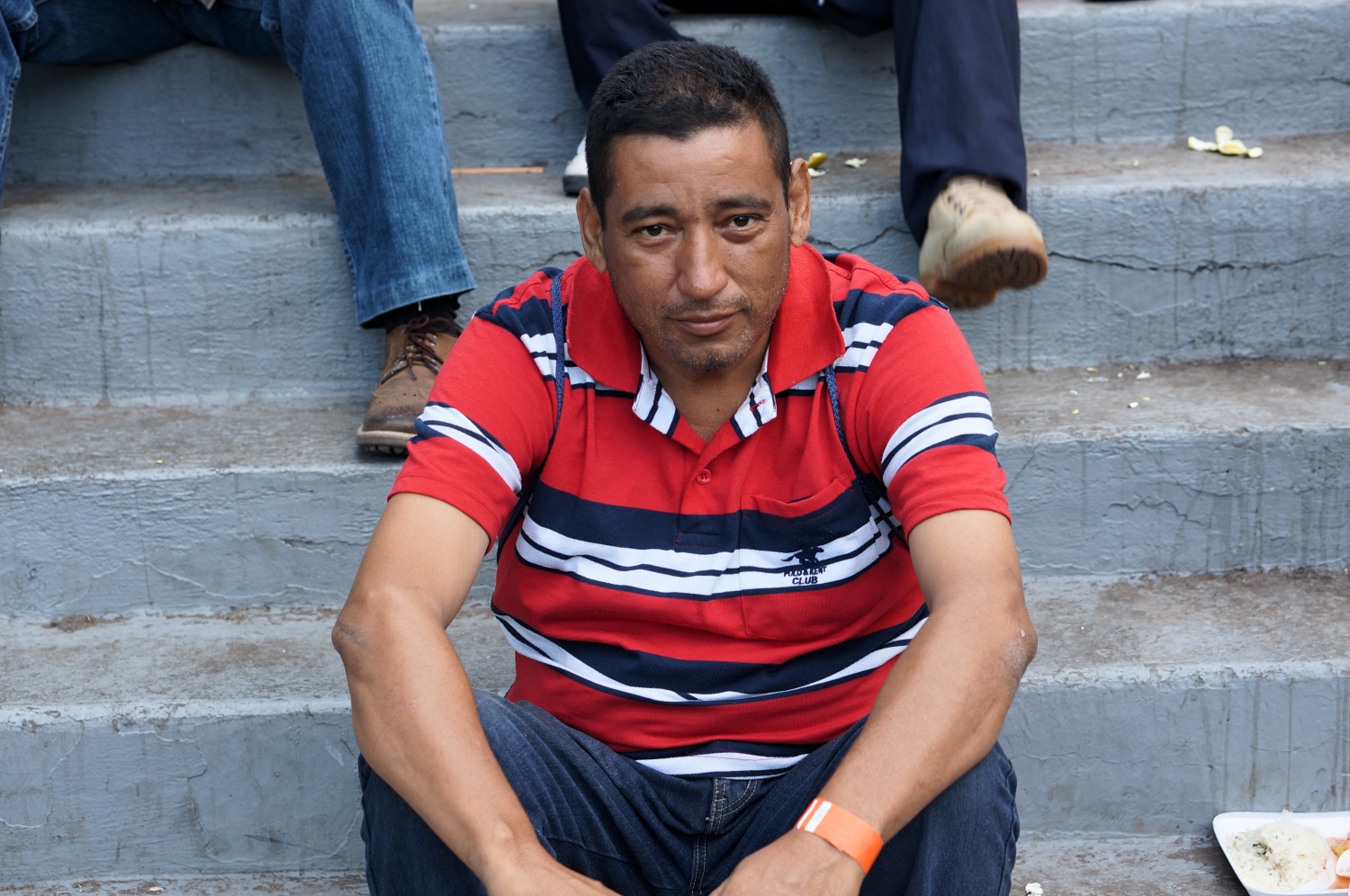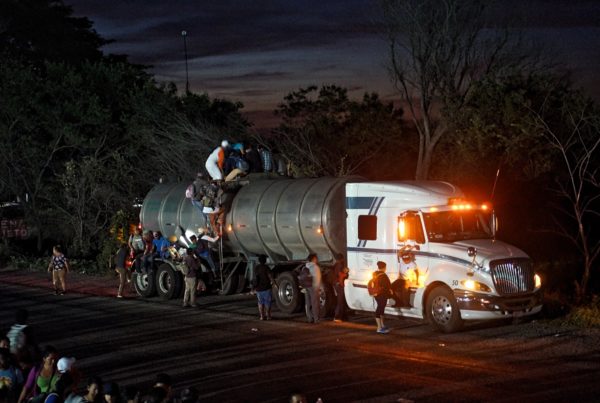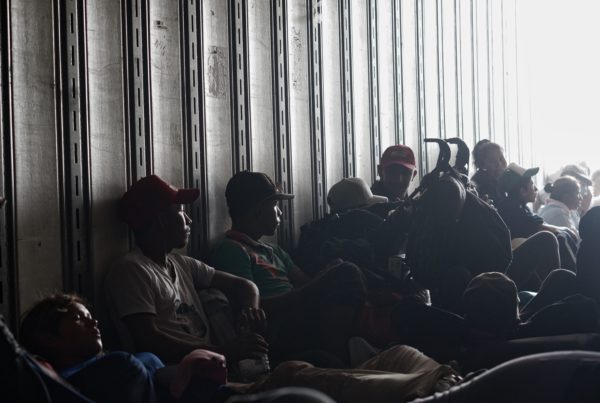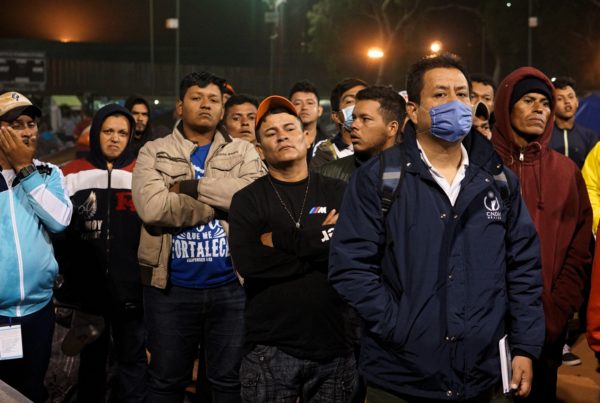Erik is a father and a taxi driver from San Salvador, the capital of El Salvador.
“My country is in chaos at the moment. It’s ruled by gangs. The Maras.”
When Erik talks about the gangs he could be referring to the Mara Salvatrucha, also known as MS-13, El Salvador’s most notorious gang. But he could just as easily be speaking about El Salvador’s other two major gangs: the 18-Sureños and the 18-Revolucionarios.
In 2016, the NY Times reported that gangs in El Salvador had “an estimated 60,000 members in a country of 6.5 million people” and they maintained “a menacing presence in 247 of 262 municipalities.”
Erik tells me he was extorted by gangs in San Salvador. Each week he had to pay US$20 or he risked physical repercussions. According to the NY Times, gangs extort about 70 percent of businesses in the country.
Erik was worried about the threats to his daughters.
“Once girls come of age, 12, 13 years, the gangs already want to take them away and make them their women.”
Erik’s eldest son was 21 years old when he was murdered by gang members.
“They treated him worse than an animal,” Erik says. “Today, being young in El Salvador is a crime. Young people are being killed in El Salvador every day.”
His youngest son was 17 years old when gangs started trying to recruit him. Erik refused to have his son join them. In retaliation, gang members broke into Erik’s house and pistol whipped Erik, slicing his head open. They gave him 24 hours to leave his house before they would come back. Erik and his family left their home and all their belongings behind and fled the country.
Erik and his family joined the second caravan from Central America in Tapachula, Mexico. He heard about the caravan through a Facebook page run by an organisation called Pueblo Sin Fronteras [People Without Borders] which provides updates on the caravan’s movements through Central America. The involvement of Pueblo Sin Fronteras convinced him to make the long journey to the US.
“They guide you through the way. I wouldn’t have known where to go. I would’ve taken any road,” he says.
Erik is thankful for the help of the volunteers at Pueblo Sin Fronteras who have been travelling with the caravan ensuring nobody is left behind or is caught by immigration.
Erik is travelling with his entire family: his wife, his father, his two children (a daughter and a son who is now 18), and his son’s pregnant girlfriend. He has no family left in El Salvador and he has no home to return to after the gangs kicked them out of their house.
Thus far, Erik and his family have been travelling for a month. They left their country with no money so they can’t pay for transport. The longest they walked in one day was about 36 kilometres.
“We walk and we hitchhike, under the sun and the rain, with hunger and thirst. I am diabetic. My feet fall asleep. I get dizzy. But I want something different for my children so I sacrifice. Thank God Guatemala and Mexico have been good to us.”
In Mexico, the authorities have provided food, water, and medicine for his diabetes.
The second caravan is also aiming for Tijuana. And there is a third caravan of approximately 3,000 people from El Salvador following them.
Erik doesn’t know much about the route but the people of the caravan say it’s dangerous. He has heard that between Guadalajara and Tijuana people get kidnapped. He places his and his family’s fate in God’s hands.
“If God allows it, we will cross. It is Him who has the last word. He is sovereign and he knows each family’s needs.”
Erik has family in Australia who fled El Salvador during the civil war in the 1980s. He thinks they found asylum in Australia through a UNHCR resettlement program.
The civil war in El Salvador lasted 12 years from 1980-1992. It was fought between the military-led government which took power in 1979 through a coup and the Farabundo Martí National Liberation Front. The military government was considered an ally of the United States and was financially supported by the Carter and Reagan administrations, despite its poor human rights records which included targeting civilians with death squads and recruiting child soldiers.
Erik remembers the military assassinating people in cold blood.
“They dropped bombs on the hills and a lot of innocent people would die. The war was hard.”
His family did not fight in the war. They are Evangelical Christians.
“Since we were young my father set the fundamentals that God exists. He’s the king of kings. He is the life-giver. God comes first. He has to be number one in our lives.”
Erik’s family contemplated applying for asylum to Australia, but his dad was worried about moving because Erik and his sister were very young. Erik can’t imagine how different his life would be if they had followed their family members to Australia. Thirty years later, Erik is determined to save his family.
This is the first time Erik has tried to reach the United States. He has no family in the US but his wife’s mother lives there. I find it strange but so far they haven’t talked to his mother-in-law about their trip. Erik says that he and his family intend to ask for asylum.
“We are chasing the American dream, as everyone says.”
This will be made more difficult by the Trump administration’s attempts to restrict protection for people fleeing gang violence. Perhaps Trump should consider the history of US involvement in El Salvador and the role previous US governments have played in the deteriorating situation of the country before making decisions that could endanger the lives of people like Erik and his family.
While we speak Erik’s son arrives. I didn’t realise this but Erik had been sitting at the entrance to the stadium waiting for him. They had got separated when his son left on another bus and Erik didn’t know what had happened to him.
“Don’t be doing that,” Erik chides his son in front of me. “We were worried.”
Erik hugs his son and smiles at me. He looks tired.



